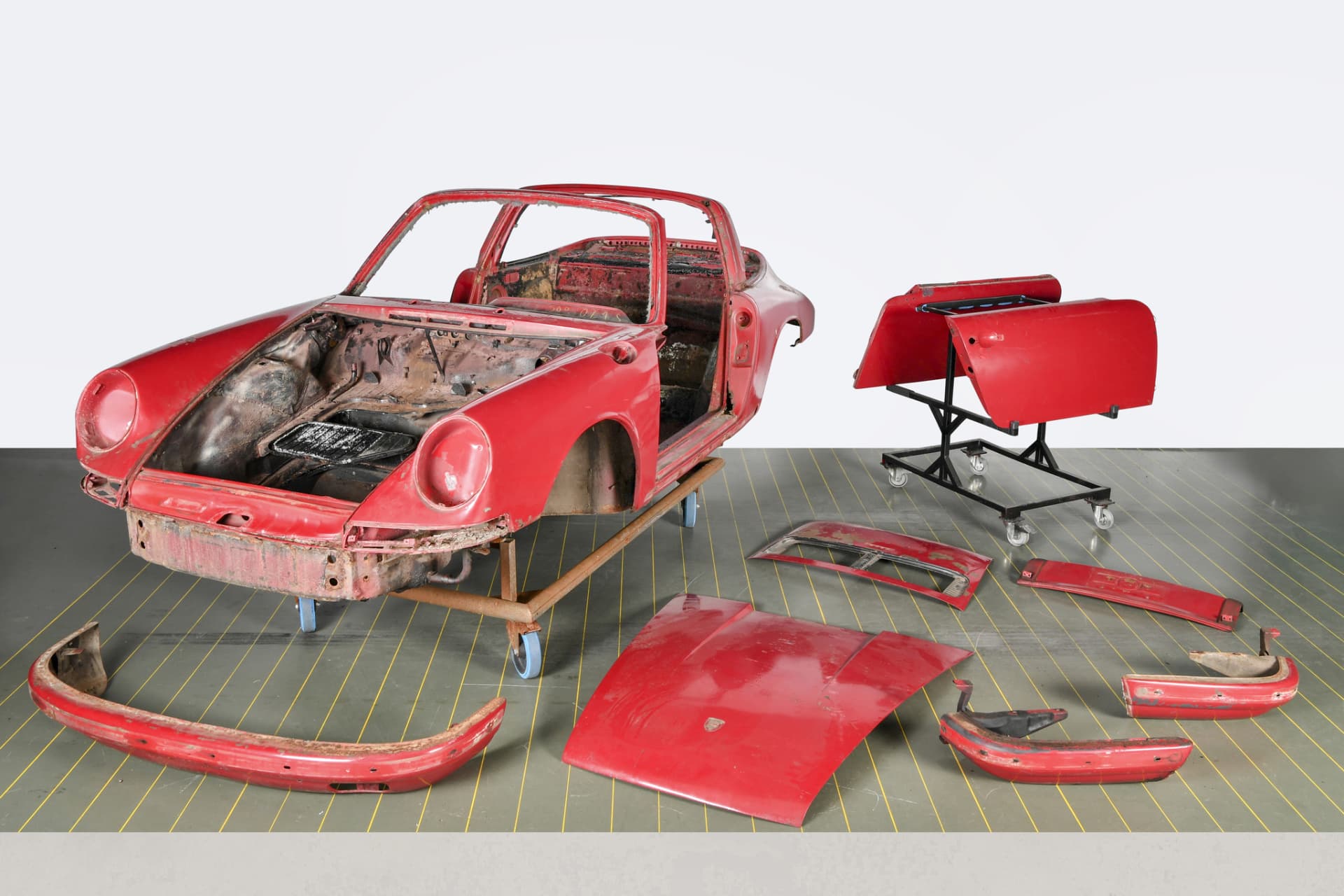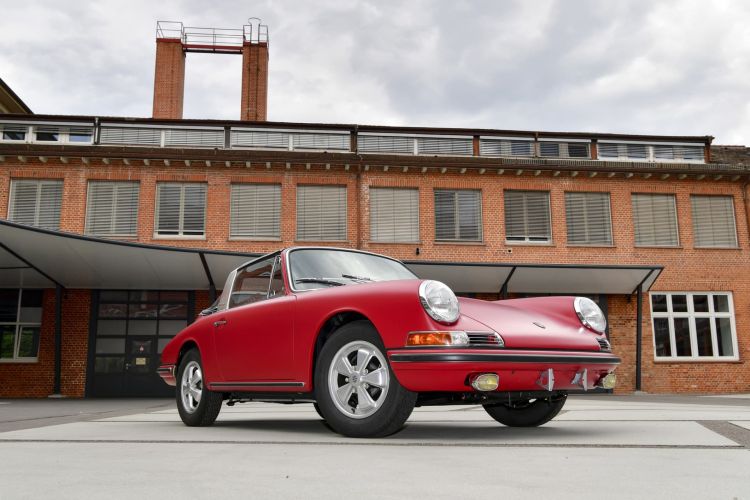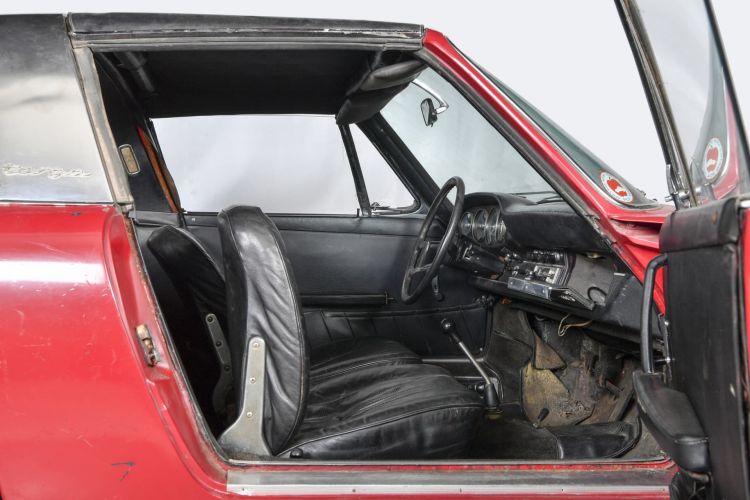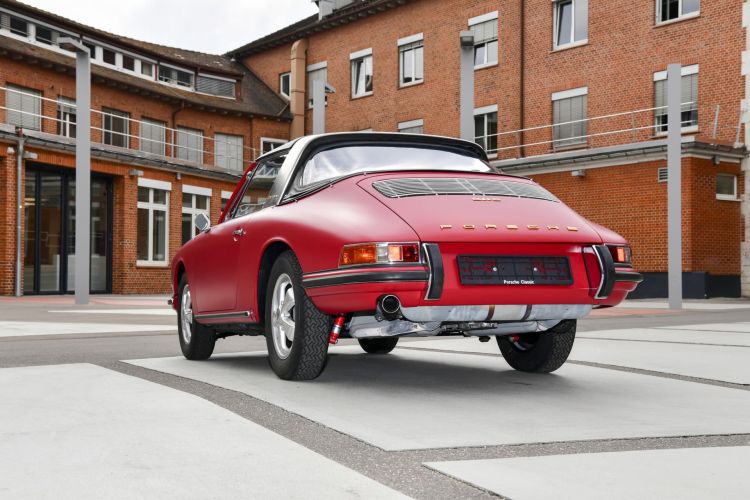the history of Porsche 911 S Targa from 1967 that you can see in the images and that we are going to tell you about next is the perfect archetype of barn find or barn find in which all petrolhead we dream of being involved in our life. This Nine Eleven was the first Targa of its class delivered in Germanyspecifically on January 24, 1967 in Dortmund, and that as usual at the time, only two years later he embarked for the United States where its eager new owner awaited it, who enjoyed it until in 1977 he left it forgotten in a garage in Long Beach covered by a plastic sheet. He endured forty years of hibernation until he was discovered by an enthusiast of the brand who decided to give him a second life at the hands of Porsche Classic.
The restoration process of this Porsche 911 S Targa abandoned for four decades stretched over three years.
Three years ago a restoration process began, which basically consists of return it to a state, literally, the same as when it left the factory. According to the people of Porsche Classic, this unit is very special, since it is one of the 925 911 S Targa that were built with soft rear glass (later, a glass was used as such, and not a canvas with a transparent plastic similar to the flexible roof of a roadster), in addition to having quite a few original options of the timesuch as the original Webasto heater, Blaupunkt radio, fog lights or outdoor thermometer.
So, once it arrived at the Zuffenhausen facility in a sorry but thankfully complete state, Porsche specialists took a close look at it to estimate the cost of the restoration, which its new owner readily agreed to, and they got down to business. the work. The first step was disassemble the whole car completelyOn the one hand, the engine and gearbox, which were completely rebuilt following the original specifications and checked.
Nevertheless, the most laborious work was that of sheet metal and paint, which alone took more than a thousand hours, but it has its explanation. The bodywork was separated into all the panels that make it up, correcting any signs of corrosion, to then take it to the same manufacturing line where the current bodies of the new Porsches receive a cathodic protection bath, and finally paint it by hand with a drying time between coats of three weeks. But also, since the intention of its new owner was to drive it and not treat it as an exhibition object, a protective film special.
For the paint job, the bodywork was left completely bare to apply a cathodic protection bath.
So far we can say that it was the “easy part” of this restoration, because there were two great challenges. On the one hand, and despite being an official Porsche department with access to a multitude of technical information and more than 60,000 original references, finding certain spare parts that did not come from third parties is a challenge for models with these characteristics. Also, the client insisted that the new flexible roof retains its original look and feel, and did not have the most robust and rigid touch of the current ones. Therefore, one was made completely by hand following those specifications. likewise, also it was the client’s wish to avoid the current powder coating more appropriate to cover certain parts of the chassis, engine panels or air filter, and use the same two-component black paint of yesteryear.
Finally, we do not want to end without reviewing the mechanical section of this 1967 911 S Targa Polo Red, which has a 1,991 cc six-cylinder boxer engine that produces a discrete power of 160 hp at 6,600 rpm By today’s standards, it is completed with two Weber carburettors and a 5-speed manual gearbox. With all this, and thanks to its featherweight 1,030kgget a 0 to 100 km/h in 7.6 seconds and a top speed of 225 km/h.








